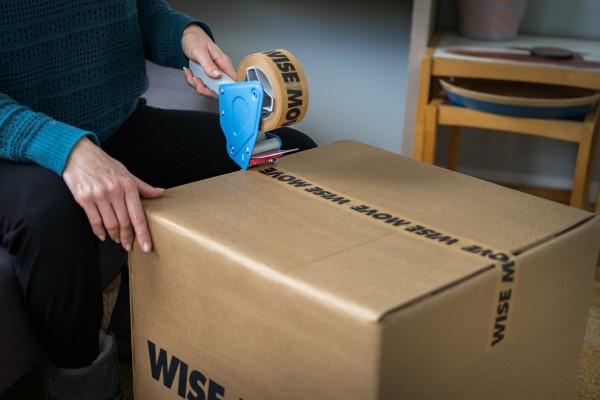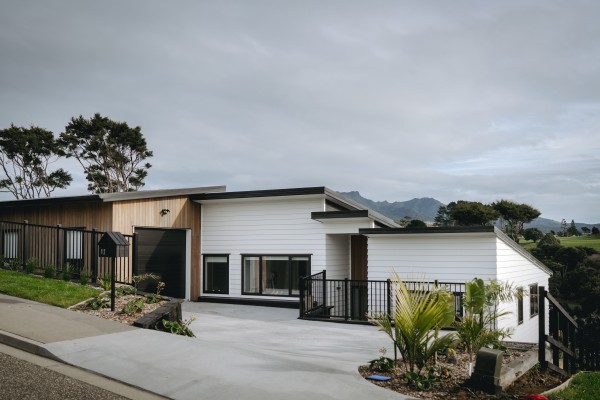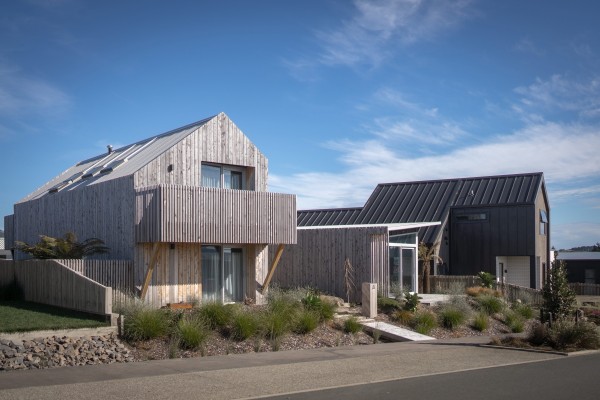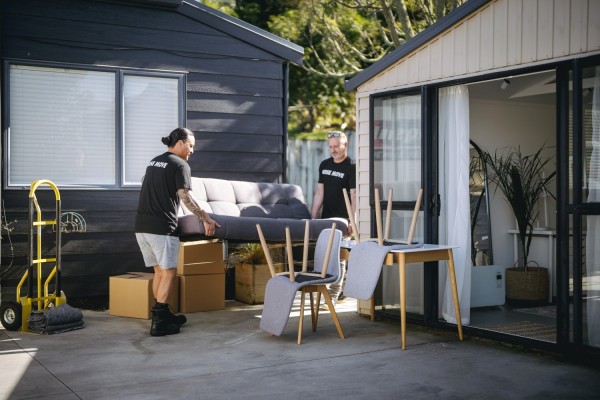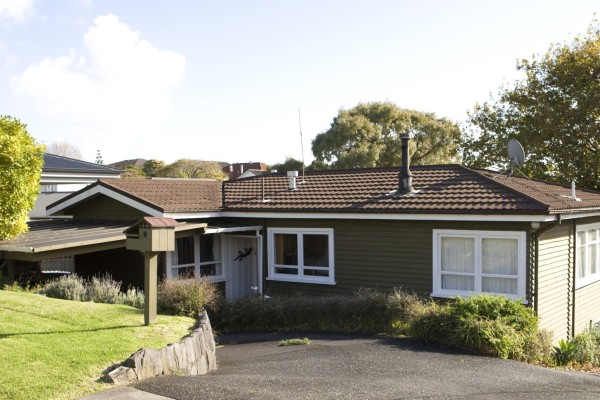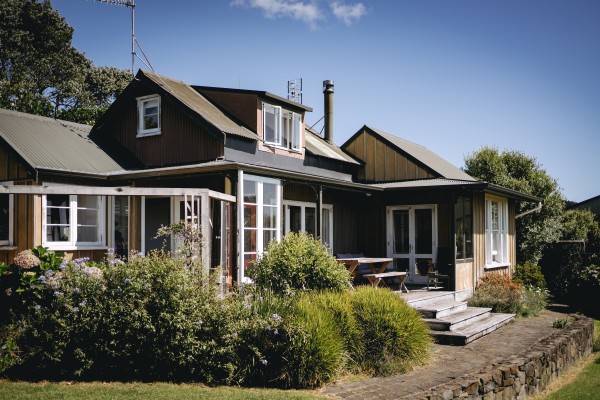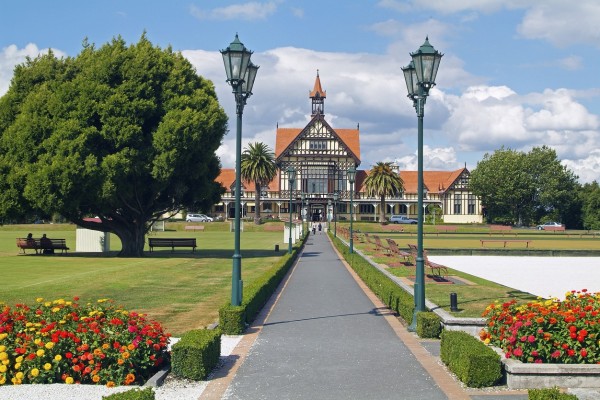The Cost of Living in New Zealand [2025]

![The Cost of Living in New Zealand [2025] The Cost of Living in New Zealand [2025]](https://cdn.wisemove.co.nz/image/blog/a192a2ff89a461f301d210d373446fa9.jpeg)
The cost of living in New Zealand ranks highly on many indexes that prove it’s a fantastic place to live. It’s safe, welcoming, filled with beautiful scenery, and the locals exude a type of friendliness that can be hard to find in other parts of the world.
Despite all the pros of moving to this South Pacific island nation, the cost of living in New Zealand can be pretty high.
Before moving to a new country, it’s always a good idea to set out a budget and understand whether you can afford to live comfortably in your new country.
Reasons to move to New Zealand
New Zealand has a population of 5 million people. There are downsides to moving to a small country.
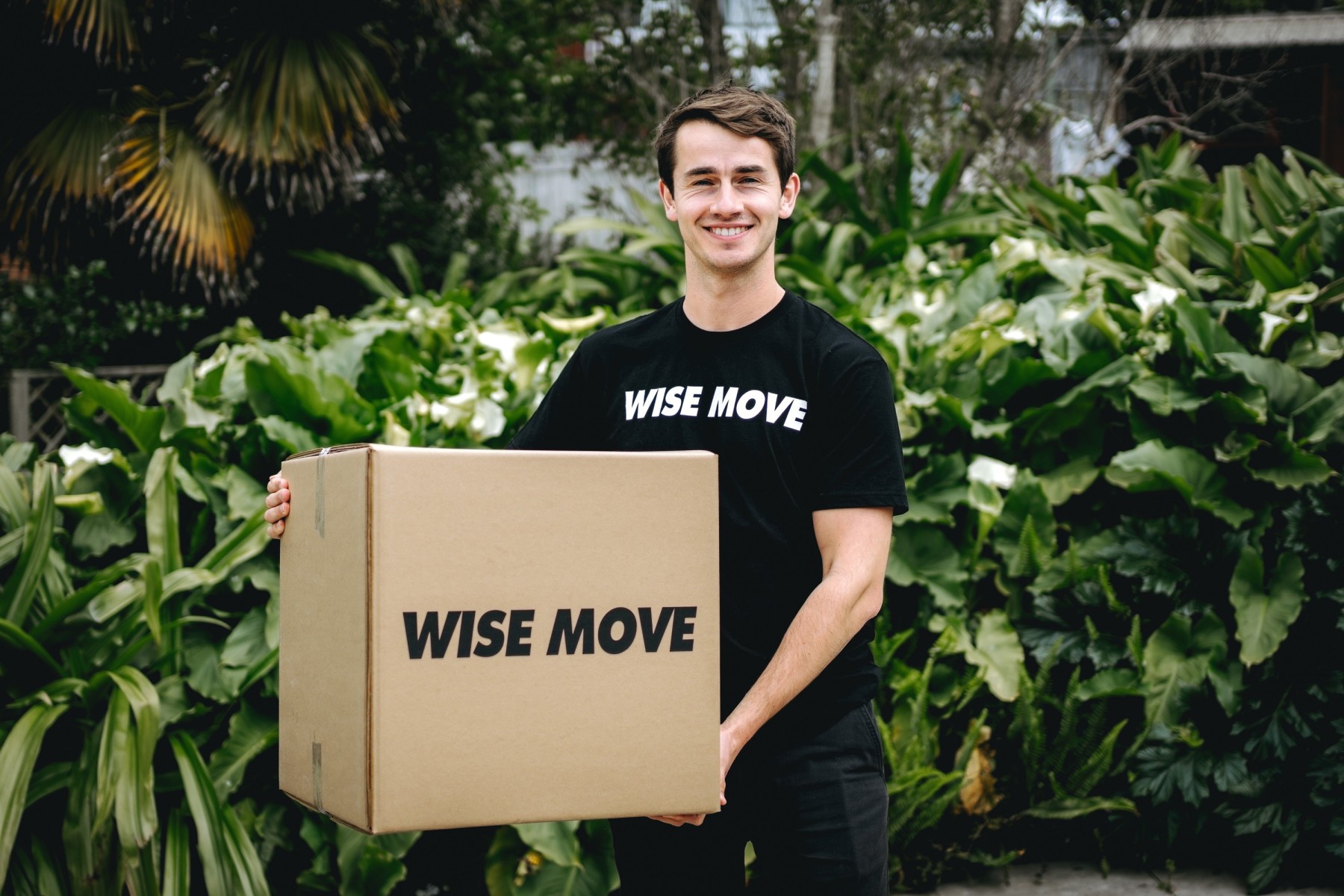
A smaller job market can make it more challenging for some people to find work, while New Zealand wages are typically lower than in many other Western countries.
However, most people looking to move to New Zealand are more interested in the lifestyle the country has to offer.
New Zealand is exceptionally safe and has a low crime and corruption rate. As the first country to give women the vote, New Zealand continues to be a very progressive country.
To top it all off, New Zealand is a great place to live and raise a family due to its high level of work-life balance. With mandatory 4-weeks of annual leave, additional annual sick days, one year's worth of maternity leave per child, free healthcare and a high minimum wage, it’s a country with many social programs that aim to look after its citizens.
What’s the average salary in New Zealand?
Salaries can be on the lower side compared to other Western countries. However, New Zealand is a very egalitarian society with less extreme poverty and extreme wealth than most other countries.
The median income in New Zealand is NZ$31.61 per hour or an annual salary of $65,748.80 for a 40-hour week. Salaries differ depending on the region and the industry. Larger cities like Auckland and Wellington pay higher wages to keep up with the higher cost of living.
You may want to invest in your higher education before moving to New Zealand. A Bachelor’s degree can help you earn up to 40% over the average income. The minimum wage in New Zealand is NZ$23.15 an hour.
High paying professions
According to data from the job-seeking website Seek, accounting CFOs are offered some of the highest salaries in the country at NZ$198,644 per annum.
Other high-paying professions include:
- Healthcare & Medical - general practitioner: NZ$208,181
- Accounting - Financial controller: NZ$155,361
- Legal - Senior Associate: NZ$153,529
- Healthcare & Medical - Sonographer: NZ$141,378
- Accounting - Finance Manager: NZ$133,047
- Information & Communication Technology - Data Engineer: NZ$127,118
- Engineering - Project Manager: NZ$126,561
- Information & Communication Technology - Product Owner: NZ$124,650
- Construction - Site Manager: NZ$123,496
- Information & Communication Technology - Network Engineer: NZ$122,162
Tax in New Zealand
New Zealand has a straightforward tiered tax system. This means you may pay a few different tax rates on your salary or income, depending on how much you earn. In New Zealand, you will pay:
- 10.5% tax on income from NZ$0 to NZ$15,600.
- 17.5% tax on income from NZ$15,601 to NZ$53,500
- 30% tax on income from NZ$53,501 to NZ$78,100
- 33% tax on income from NZ$78,101 to NZ$180,000
- 39% tax on income from NZ$180,01+
As an employee, your employer will take care of your taxes for you. It’s a good idea to figure out how much income you will have after tax to see if you can afford to have the life you want in New Zealand.
Cost of living in New Zealand
When it comes to the cost of living in New Zealand, expect accommodation to take up a good portion of your monthly budget.
New Zealand’s housing market went through a significant boom in 2020 and 2021. In 2024, the average house price was $905,357 - seven times the average household income. This is down from a peak of 8.7 in 2022, but it's still above the long-term average of 5.9.

Regional House Prices
House prices have been rising steadily in New Zealand for decades due to a lack of supply. Average regional house prices in 2024 had dropped compared to the year before.
- Auckland: NZ$970,000
- Bay of Plenty: NZ$840,000
- Tasman: NZ$800,000
- Wellington: NZ$792,500
- Nelson: NZ$650,000
- Waikato: NZ$737,300
- Hawke's Bay: NZ$680,000
- Otago: NZ$650,000
- Central Otago: NZ$650,000
- Christchurch: NZ$655,000
- Northland: NZ$675,000
- Marlborough: NZ$645,000
- Manawatu-Whanganui: NZ$540,000
- Gisborne: NZ$575,000
- Taranaki: NZ$570,000
- Southland: NZ$423,500
- West Coast: NZ$400,000
Renting in New Zealand
Rent in New Zealand is collected weekly. While rent will vary based on which city or town you live in. This tenancy website has a helpful calculator that can tell you the average rent price in the city or town you plan on moving to.
The monthly cost of living in New Zealand
The cost of living in New Zealand differs depending on whether you live alone, or split a rent or mortgage. It also depends on whether you live in the city or a town. For one person living alone in a major city, the cost of living is around NZ$4,284 per month. A family of four can expect to need NZ$6,372 per month to live.
Cost of living by city
Auckland
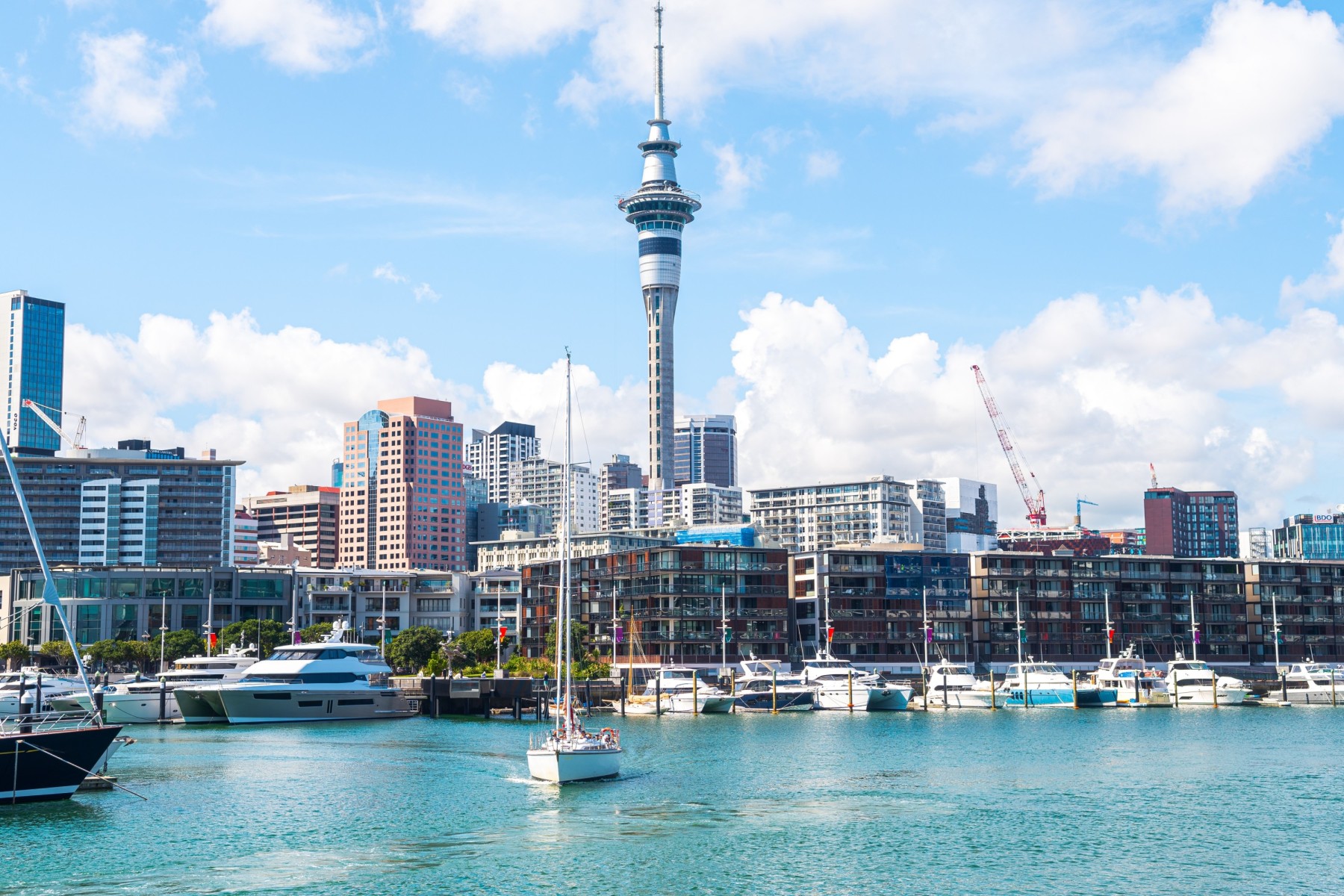
New Zealand’s biggest city is also its most expensive. While Auckland has some of the highest salaried jobs in the country (and the most significant job market) it’s also the most expensive place to rent, buy, or eat out.
According to the comparison website Glimp, to live alone in Auckland, you need to earn at least NZ$5,000 per month, while a family needs around NZ$7,984 per month to live comfortably.
Rent and mortgage payments are pretty high in Auckland, although it is cheaper to live in the CBD than in a city fringe suburb. Expect to pay around NZ$2,000 per month to live alone in the CBD or NZ$2,250 in the city fringes. To rent a three bedroom house in the city fringes costs around NZ$3,880/month. The average house price in Auckland is NZ$970,000.
Unless you live in the central city or suburbs close to it, Auckland isn’t overly walkable or public transport friendly. While living in the suburbs will save you rent money, you may want to buy a car to get yourself around the wider city.
Read full cost of living guides in Auckland:
Wellington
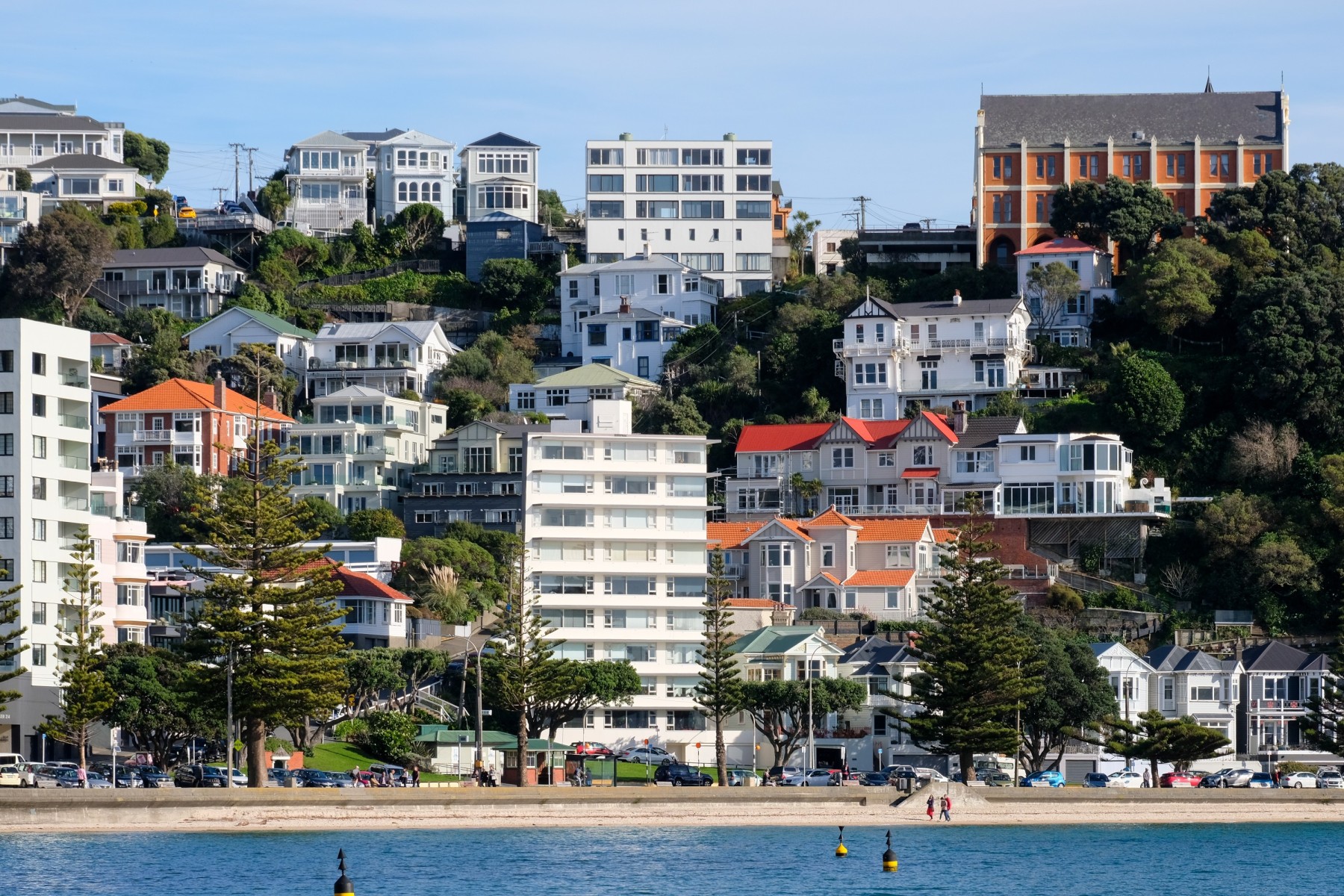
Auckland has the highest rent in the country and is slightly more expensive than Wellington when it comes to groceries and other costs of living expenses. The 2024 Trade Me Rental Price Index showed Wellington had a median weekly rent of NZ$650, while Auckland has an average rent of NZ$675.
The median weekly rent in August 2024 was NZ$640. Despite house prices dropping in 2024, rental prices were 3.2% higher than August 2023.
One of the cost-saving benefits of living in Wellington is its expansive public transport system. Owning a car in Wellington isn’t necessary, as the city has buses, trains and ferries that service the inner city, Kapiti Coast and Hutt Valley Regions.
A single person living in Wellington must earn at least NZ$5,130 after tax per month to keep up with the minimum cost of living. A family of four needs to collectively make at least NZ$7,318 after tax per month as a household to comfortably get by.
Read full cost of living guides in Wellington:
Christchurch
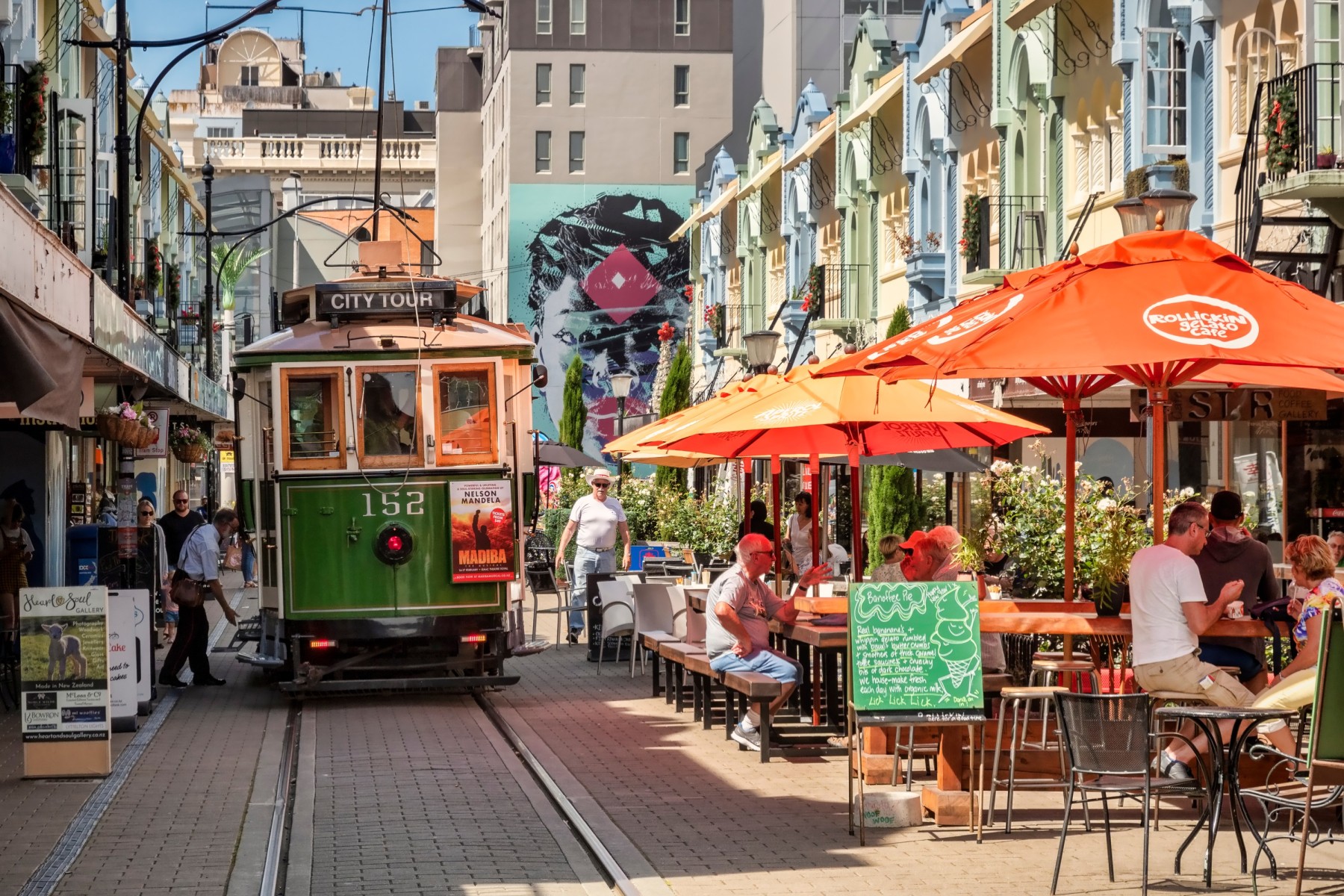
Christchurch is the South Island’s biggest city and has bounced back considerably from the devastating earthquake that hit in 2011. As a large business hub, it has a growing economy and the rebuild of the city has helped keep house prices and rents from skyrocketing.
Christchurch is New Zealand’s most affordable big city to live in. The cost of living is still more expensive than in smaller towns, however, you’ll find houses and rentals far more affordable than in even smaller cities like Gisborne, Napier or Tauranga.
A single person needs around NZ$4,298 per month for rent, food and bills, while a family of four should be earning a minimum of NZ$6,224 per month to live in Christchurch. The average price of rent in Christchurch in 2024 was NZ$510 a week.
Read the full cost of living guide in Christchurch:
Queenstown
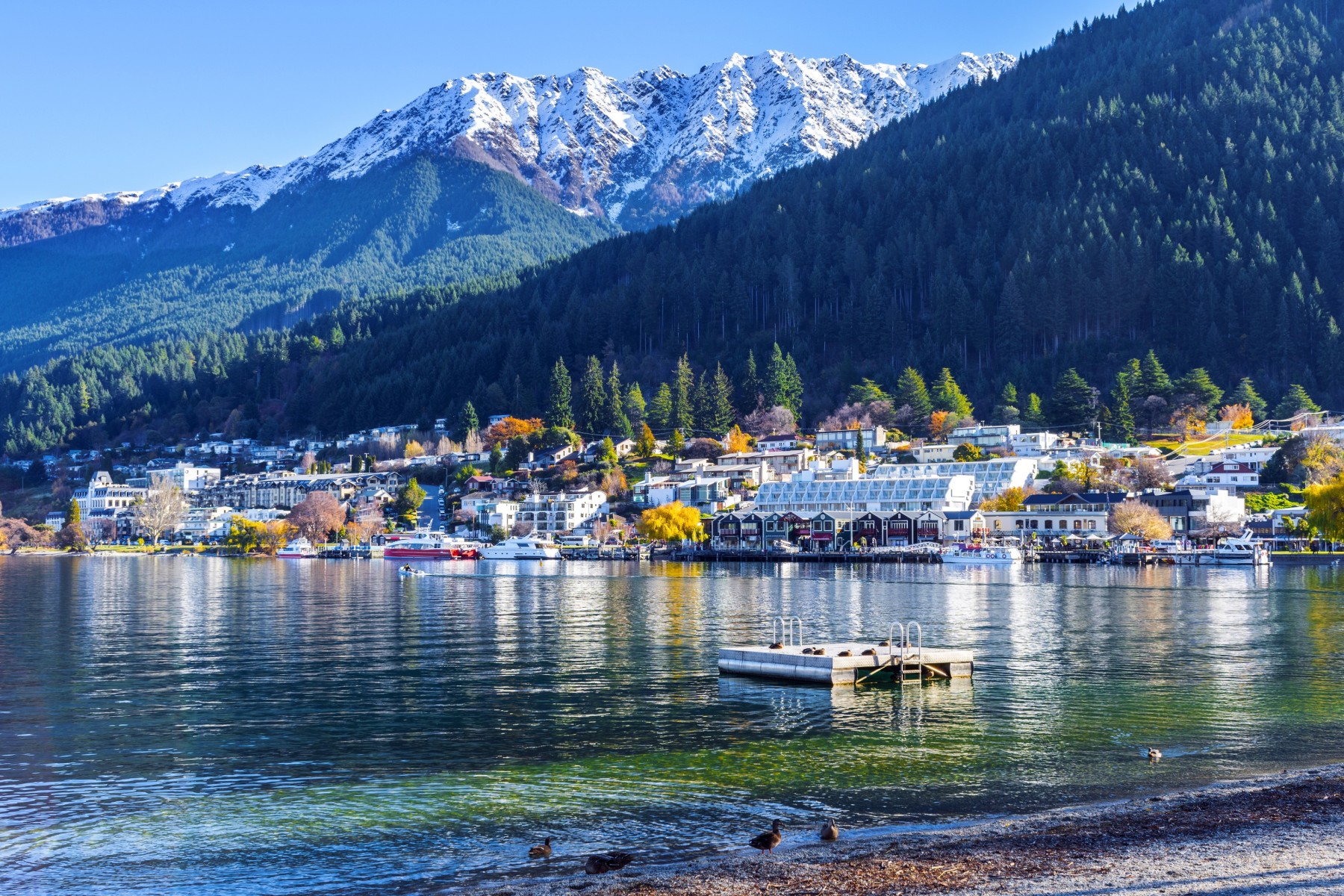
Queenstown might be a small town, but it’s known for having some of the most expensive housing in the country. In the last thirty years, it's gone from a humble village into a town known for luxury accommodation and adrenaline-fuelled activities.
Queenstown has had a housing shortage for the past few years due to its geographic location and popularity with tourists and wealthy investors. This has also helped to push up the prices of goods, foods and services.
In November 2024, data released by property website real estate.co.nz showed house prices in Central Otago and the Queenstown Lakes Districts were on average NZ$1.8 million, an 11% increase from the year before.
On average, the weekly rent in Queenstown is NZ$720. This is an increase of $20 a week compared to a year earlier. Most people will split this cost between two, three or even four flatmates. To enjoy living in Queenstown a single person should budget at least NZ$5,000 per month to live alone and $NZ4,000 to live in a flat. A family of four needs to make at least NZ$8,000 per month.
These figures are more than what you may need even in bigger cities like Wellington, as the cost of groceries, eating out, and entertainment is very expensive in Queenstown. Many people choose to live in smaller towns outside of Queenstown and then commute into the town.
Read the full cost of living guide in Queenstown:
What do everyday items cost in different parts of New Zealand?
New Zealand was ranked 19th out of 197 countries in 2023 regarding the cost of living, with a cost index of 101.4.
Auckland
The average weekly food shop for one person costs $114
Aucklanders spend an average of $15 a week on clothes
Housing and household utilities cost $274.50
Household contents and services cost $35.10
Entertainment costs the average Aucklander $72 a week
Aucklanders spend an average of $91.70 a week on transport
Christchurch
The average weekly food shop for one person costs $110
Clothing and footwear costs an average of $8.60 a week
Housing and household utilities cost $219
Household contents and services cost $34
Entertainment costs the average Christchurch resident $51 a week
Christchurch residents spend an average of $83 a week on transport
Tauranga
The average weekly food shop for one person costs $60
Clothing and footwear costs an average of $12.40 a week
Housing and household utilities cost $164
Household contents and services cost $15
Entertainment costs the average Tauranga resident $36 a week
Tauranga residents spend an average of $50 a week on transport
Hamilton
The average weekly food shop for one person costs $89
Clothing and footwear costs an average of $12.40 a week
Housing and household utilities cost $184
Household contents and services cost $21
Entertainment costs the average Hamilton resident $56 a week
Hamilton residents spend an average of $85 a week on transport
The unexpected cost of living in New Zealand
Flights
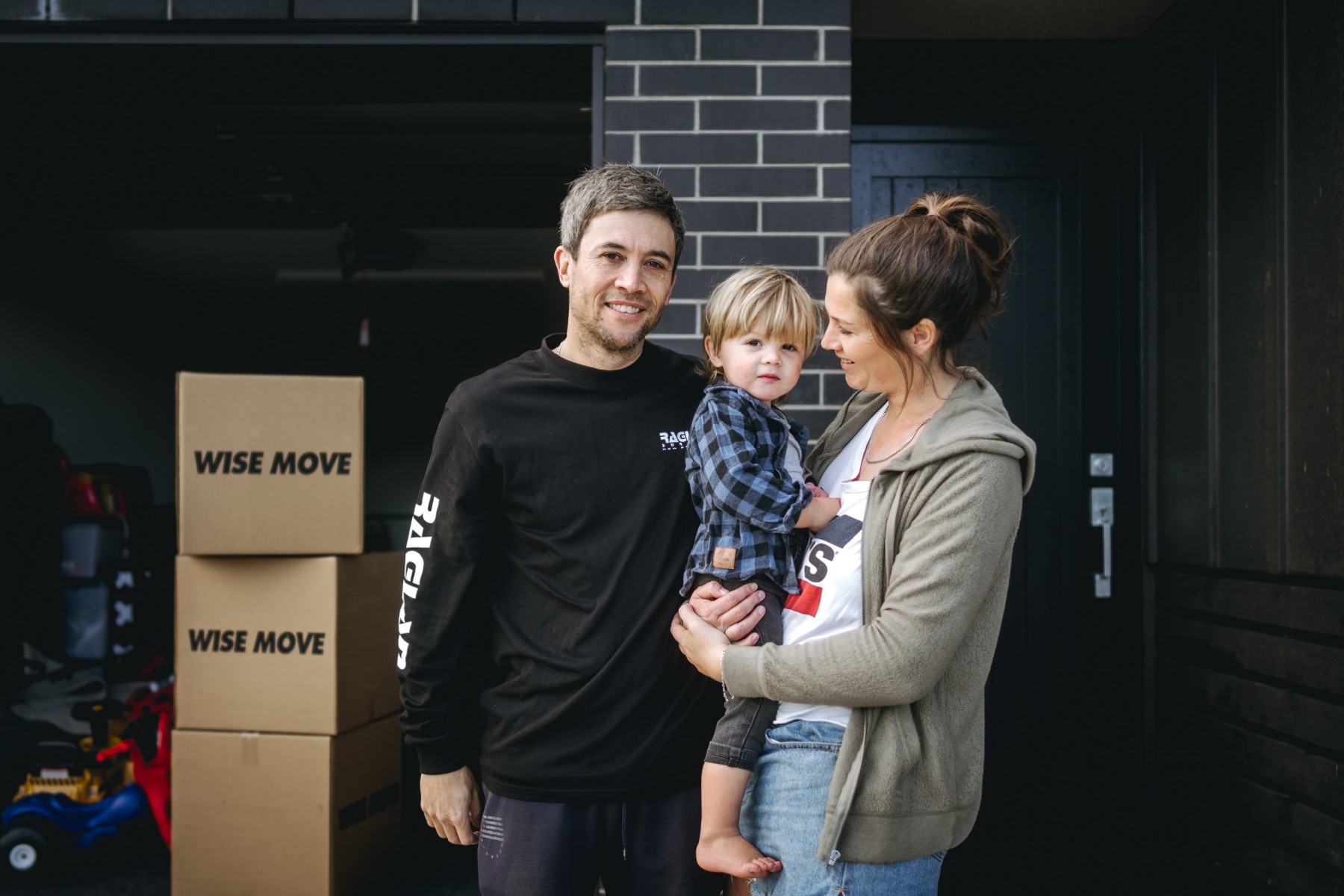
New Zealand is a very isolated country.
The cost of flying to, from and within New Zealand can be high as the country only has two major airlines. Flights between major cities can cost anywhere from NZ$60 (at their cheapest) one way to NZ$499 at busier times of the year. It pays to book ahead to ensure you are not paying too much for your holiday.
Private Car
You’ll also want to factor buying a car into the cost of living in New Zealand.
Public transport outside of major city centres isn’t excellent, and there’s much to see and do outside of the cities. Fuel is more expensive in New Zealand which is why it pays to include petrol in the cost of living in New Zealand.
The average price of a litre of petrol in New Zealand is NZ$2.76.
Food
In the 12 months leading up to October 2024, New Zealand has experienced a 1.2% increase in food prices. According to Statistics New Zealand, the rise is attributed to higher costs in restaurants, ready-to-eat food and grocery items, which have increased by 3.4% and 2.5%. Fruit and vegetables declined by 8.3% over the same period.
Clothing
New Zealand has a range of fast fashion retailers that you might find overseas.
On average expect to spend NZ$50 on tops, NZ$120 on sweatshirts and knits, NZ$150 on a pair of shoes and NZ$130 on a pair of jeans from mid-priced retailers.
Online Purchases
One of the biggest shocks for people moving to New Zealand from overseas is that many retailers on Amazon and eBay don’t ship to New Zealand.
Next-day delivery is also not very common. Expect to have to shop online and wait a week for your purchase, or shop at larger stores in person.
Moving to New Zealand
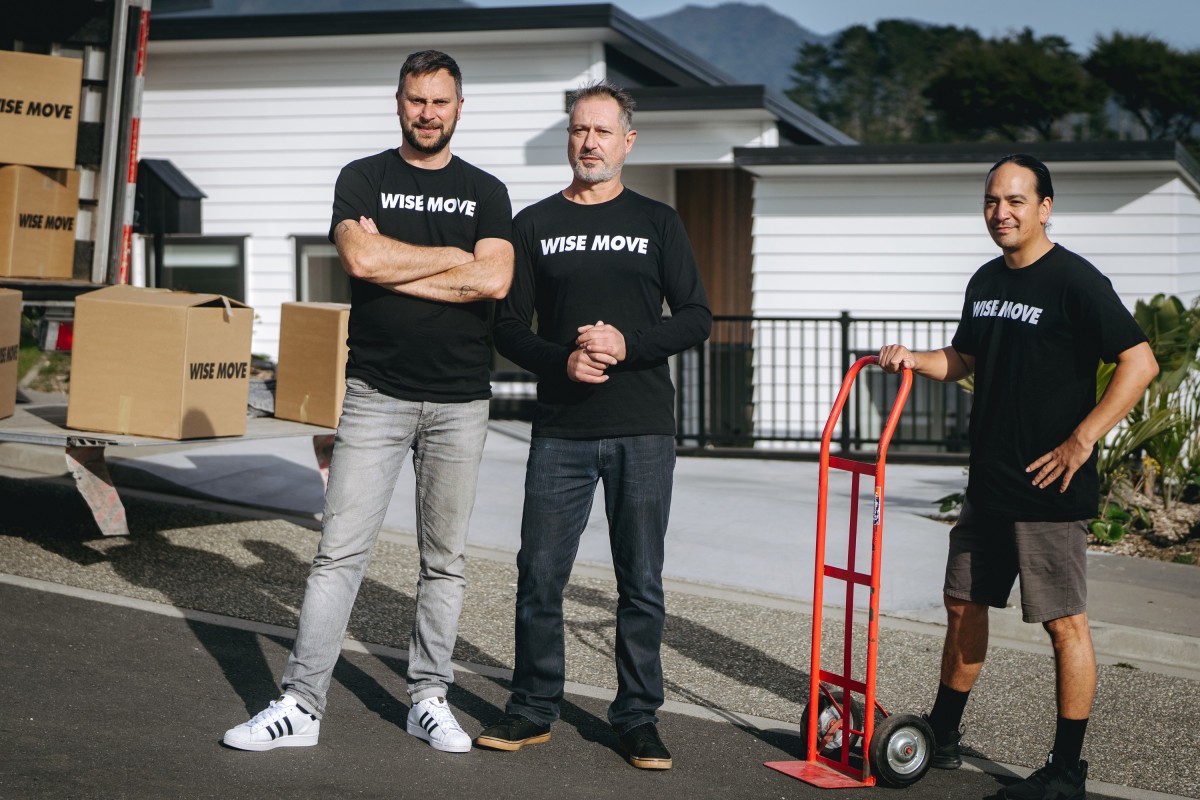
New Zealand is an expensive country to move to. But, most people who make the move find out they are actually happier with fewer material possessions and focus on buying quality goods over cheaper alternatives.
For your prized possessions, making sure you have a mover that takes care of them during the move is so important.
At Wise Move, we help you find the best movers at the best price. With Wise Move, our extensive network of trusted moving companies will help you settle into your new home in New Zealand in no time.
What do our customers say?






For every (wise)move







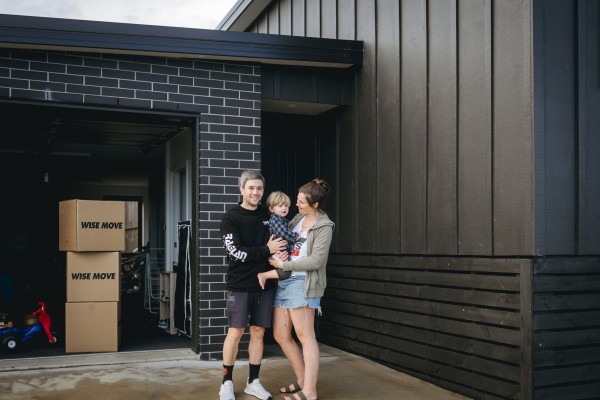
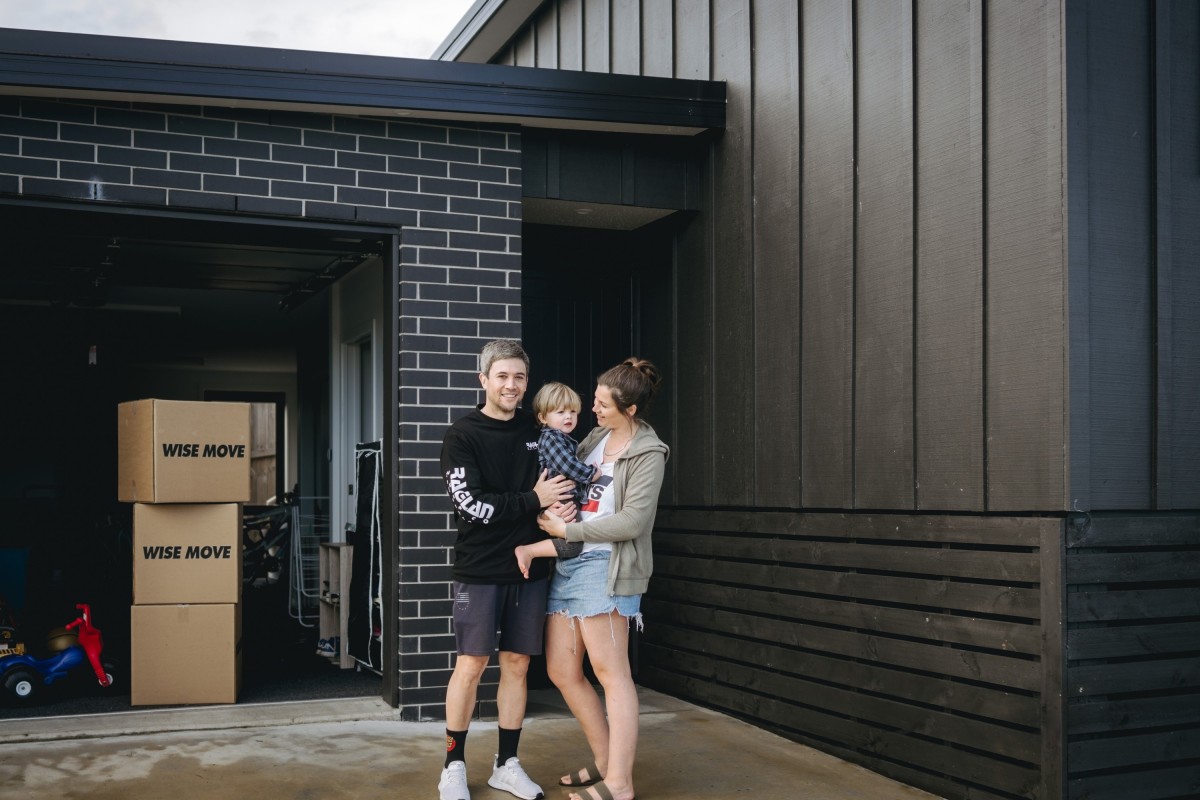
![What does it cost to build a new house in New Zealand? [2025] What does it cost to build a new house in New Zealand? [2025]](https://cdn.wisemove.co.nz/image/blog/ffd5dbdc5eec7e9eb3ad049d6c5c7f4d.jpeg)
![Cost of Living in Auckland [2025] Cost of Living in Auckland [2025]](https://cdn.wisemove.co.nz/image/blog/28805ffa60ea06355c891852d714357e.jpeg)
![Cost of Living in Wellington [2025] Cost of Living in Wellington [2025]](https://cdn.wisemove.co.nz/image/blog/9fb48a8bb223ca2bbe364be82a08dc73.jpeg)
![The Cost of Living in Christchurch [2025] The Cost of Living in Christchurch [2025]](https://cdn.wisemove.co.nz/image/blog/7f2f5f00e0f0b12f2efbd7e8106f1c77.jpeg)
![The Cost of Living in Queenstown [2025] The Cost of Living in Queenstown [2025]](https://cdn.wisemove.co.nz/image/blog/dac6744ceeec301cb10f558054b2c899.jpeg)

![How much do you need to earn to live comfortably in Auckland? [2025] How much do you need to earn to live comfortably in Auckland? [2025]](https://cdn.wisemove.co.nz/image/blog/a6c9fabaf213365fe94a9ab210681a2a.jpeg)
![How much do you need to earn to live comfortably in Wellington? [2025] How much do you need to earn to live comfortably in Wellington? [2025]](https://cdn.wisemove.co.nz/image/blog/6435c9fca5aa524ed985d352e3b56a5d.jpeg)

